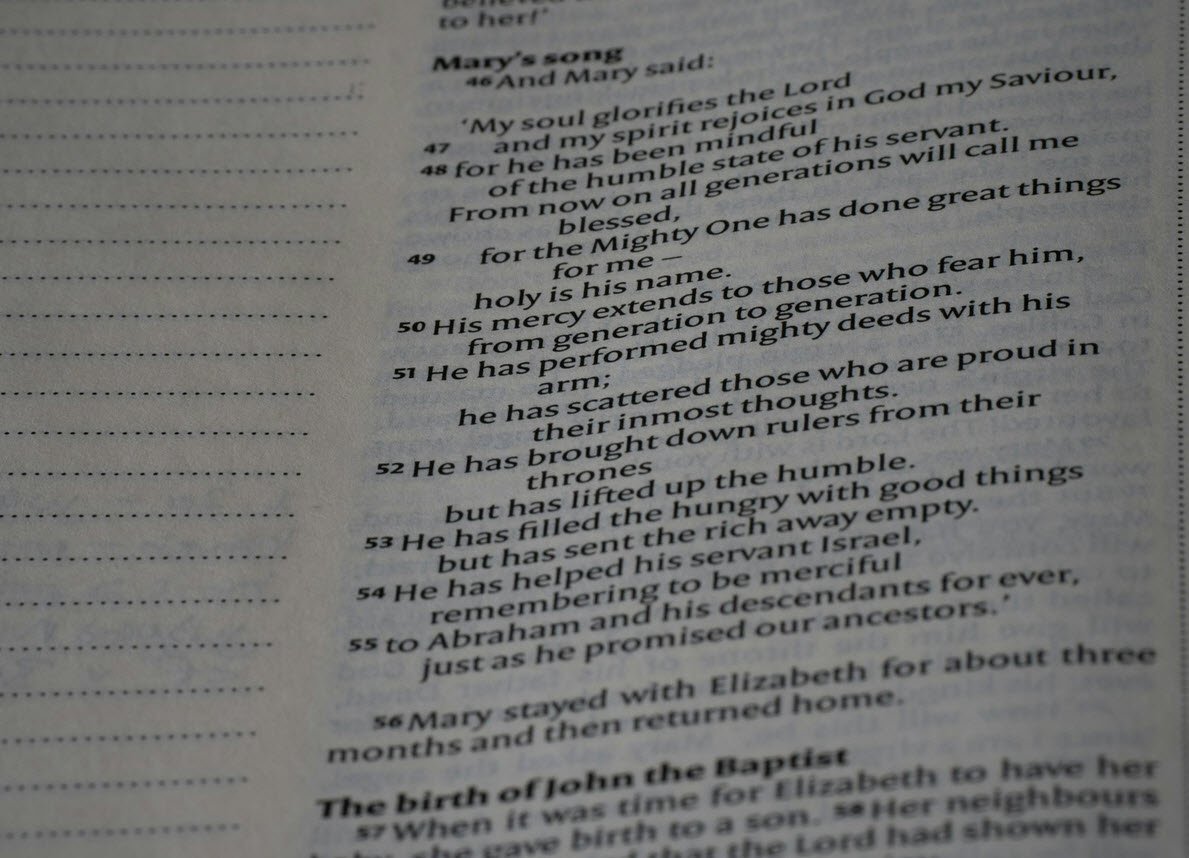
Narration, also known as reported speech or direct/indirect speech, is a linguistic device used to convey the words or thoughts spoken by someone else. It is a way of reporting or retelling what someone said in a conversation or speech. There are two types of narration: direct speech and indirect speech.
Direct Speech:
Direct speech is when we report someone’s exact words using quotation marks. The reported words are presented exactly as they were spoken, without any changes. For example:
John said, “I am going to the store.”
In this example, the exact words spoken by John are enclosed in quotation marks to indicate direct speech.
Indirect Speech:
Indirect speech, on the other hand, is when we report someone’s words or thoughts without using their exact words. Instead, we paraphrase or report the meaning of what was said. The reported words are not enclosed in quotation marks. For example:
John said that he was going to the store.
In this example, the meaning of John’s words is reported indirectly, without using his exact words.
Indirect speech often requires changes in verb tenses, pronouns, and adverbs to match the context of the reporting sentence. These changes depend on the tense and pronoun rules associated with indirect speech.
1. “What did you eat for dinner today?” the doctor asked the patient.
(A) The doctor asked the patient whether he had eaten dinner that day
(B) The doctor asked the patient what he had eaten for dinner that day
(C) The doctor asked the patient whether he has eaten breakfast that day
(D) The doctor asked the patient whether he was eaten dinner that day
2. The Director said to him, “I shall pay your wages tomorrow.”
(A) The Director said that he shall pay your wages the next day
(B) The Director told him that he would pay his wages the next day
(C) The Director said that I shall pay my wages the next day
(D) The Director said that he shall pay his wages the next day
3. “Why are you looking through the key hole?” I said.
(A) I asked him why he was looking through the key hole
(B) I said to him why he is looking through the key hole
(C) I said to him that why he was looking through the key hole
(D) I asked you why you are looking through the key hole
4. “How cruel the teacher is!” said the clerk.
(A) The clerk said that the teacher was very cruel
(B) The clerk said that the teacher is very cruel
(C) The clerk exclaimed that the teacher was very cruel
(D) The clerk exclaimed that the teacher is very cruel
5. My friend said to me, “Wait for me outside.”
(A) My friend told me to wait for him outside
(B) My friend said that I have to wait for him outside
(C) My friend wanted me to wait for him outside
(D) My friend angrily asked me to wait outside
6. “Please could you tell me the time?” he said.
(A) He asked me please could I tell him the time
(B) He asked me to please tell him the time
(C) He requested me to tell him the time, please
(D) He requested me to tell him the time
7. They said to her, “we will destroy your home”
(A) They said to her they will destroy her home
(B) They told her they would destroy their home
(C) They told her that they can destroy her home
(D) They told her that they would destroy their home
8. “You can phone from my office,” he said.
(A) He said that he could phone from his office
(B) He said you could phone from his office
(C) He said that I can phone from his office
(D) He said I can phone from my office
9. “Please sit down,” Sheetal said.
(A) Sheetal requested me to sit down
(B) Sheetal said that I could sit down
(C) Sheetal told me that sit down
(D) Sheetal said me to sit down
10. Keats said “ A thing of beauty is a joy forever”.
(A) Keats said that a thing of beauty is a joy forever
(B) Keats told that a thing of beauty was a joy forever
(C) A thing of beauty was a joy forever is written by Keats
(D) Keats has written that a beautiful things is always joyful
11. Socrates said , “Virtue has its own reward.”
(A) Socrates said that virtue had its own rewards
(B) Socrates says that virtue has its own reward
(C) Socrates said that virtue has its own reward
(D) Socrates said that virtue was its own reward
12. He said to the professor, “Could you please repeat the question?”
(a) He requested the professor if he could please repeat the question
(b) He requested the professor to please repeat the question
(c) He requested the professor if to repeat the question
(d) He requested the professor if he could repeat the question
13. She said, “it used to be a lovely, quiet garden.”
(a) She said that it used to be a lovely, quiet garden
(b) She pointed out that it had used to be a lovely, quiet garden
(c) She said that there used to be a lovely, quiet garden
(d) She inquired whether there was a lovely, quiet garden
14. The Chief Minister said that no one would be allowed to disturb the peace.
(a) The Chief Minster said, “We shall not allow anyone to disturb the peace.”
(b) The Chief Minster said, “We would not allow anyone to disturb the peace.”
(c) The Chief Minster said, “No one will disturb the peace.”
(d) The Chief Minster said, “No one can disturb the peace.”
15. The audience said, “Bravo! Well done, players.”
(a) The audience said that the players were doing very well
(b) The audience exclaimed with joy that the players were doing very well
(c) The audience applauded the players saying that they had done well
(d) The audience applauded the players joyfully to do well
16. I said to my son, “Good Morning. Let us go for a picnic today.”
(a) I told good morning to my son, and asked to go for a picnic that day
(b) I wished my son good morning and proposed that we should go for a picnic that day
(c) I wished my son good morning and proposed that should go for a picnic that day
(d) I told good morning to my son and suggested to go for a picnic today
17. The girl asked the old one, “Do you know my name?”
(a) The girl asked the old one if he knew her name
(b) The girl asked the old one that whether he knew her name
(c) The girl asked the old did he knew his name
(d) The girl asked the old one that he knew his name
18. He warned her that he could no longer tolerate her coming late.
(a) He said to her, “You can no longer tolerate my coming late.”
(b) He said to her, “I can no longer tolerate your coming late.”
(c) He said to her, “He can no longer tolerate her coming late.”
(d) He said to her, “I can no longer tolerate she coming late.”
19. I said to my father, “I will certainly take you to Bangalore this week”.
(a) I told my father he would certainly take her to Shimla that week.
(b) I told my father that I would certainly take her to Shimla that week.
(c) I told my father that she would certainly take her to Shimla that week.
(d) I told my father that I would take you to Shimla that week.
20. “How long does the class take?” my daughter asked me.
(a) My daughter asked me how long does the class take
(b) I asked my daughter how long the class would take
(c) My daughter wanted to know how long the class would take
(d) My daughter asked me how long the class did take
21. “How clever of you to have solved the puzzle so quickly,” said the teacher.
(a) The teacher exclaimed admiringly that it was very clever of him to have solved the puzzle so quickly
(b) The teacher expressed that it was very clever of him to have solved the puzzle so quickly
(c) The teacher told that he was very clever is solving the puzzle so quickly
(d) The teacher exclaimed with hit that he was clever enough to solve the puzzle so quickly
22. He said he goes for a walk everyday.
(a) He said, “I went for a walk everyday”.
(b) He said, “I go for a walk everyday”.
(c) He said, “I will for a walk everyday”.
(d) He said, “He goes for a walk everyday”.
23. I reiterated, “I don’t care about the job.”
(a) I reiterated I didn’t care about the job
(b) I said again and again I didn’t care about the job
(c) I reiterated that I did not care about the job
(d) I repeatedly said that I cared about the job
24. I surprised how many discoveries went unheeded.
(a) I said, “How many discoveries have gone unheeded?”
(b) I said, “How many discoveries went unheeded?”
(c) I said, “Do discoveries go unheeded?”
(d) I said, “How many discoveries go unheeded?”
25. I said to my sister, “Let us go to some hill station for a change.”
(a) I suggested to my sister that they should go to some hill station for a change
(b) I suggested to my sister that we should go to some hill station for a change
(c) I suggested to my sister that let us go to some hill station for a change
(d) I suggested to my sister that left them go to some hill station for a change
Correct Answers:
- B
- B
- A
- C
- C
- D
- D
- A
- A
- A
- C
- D
- A
- B
- C
- B
- A
- B
- B
- C
- A
- B
- C
- D
- B
In summary, narration, or direct/indirect speech, is a way of reporting or retelling someone’s words or thoughts. Direct speech presents the exact words spoken, while indirect speech paraphrases or reports the meaning without using the exact words.








